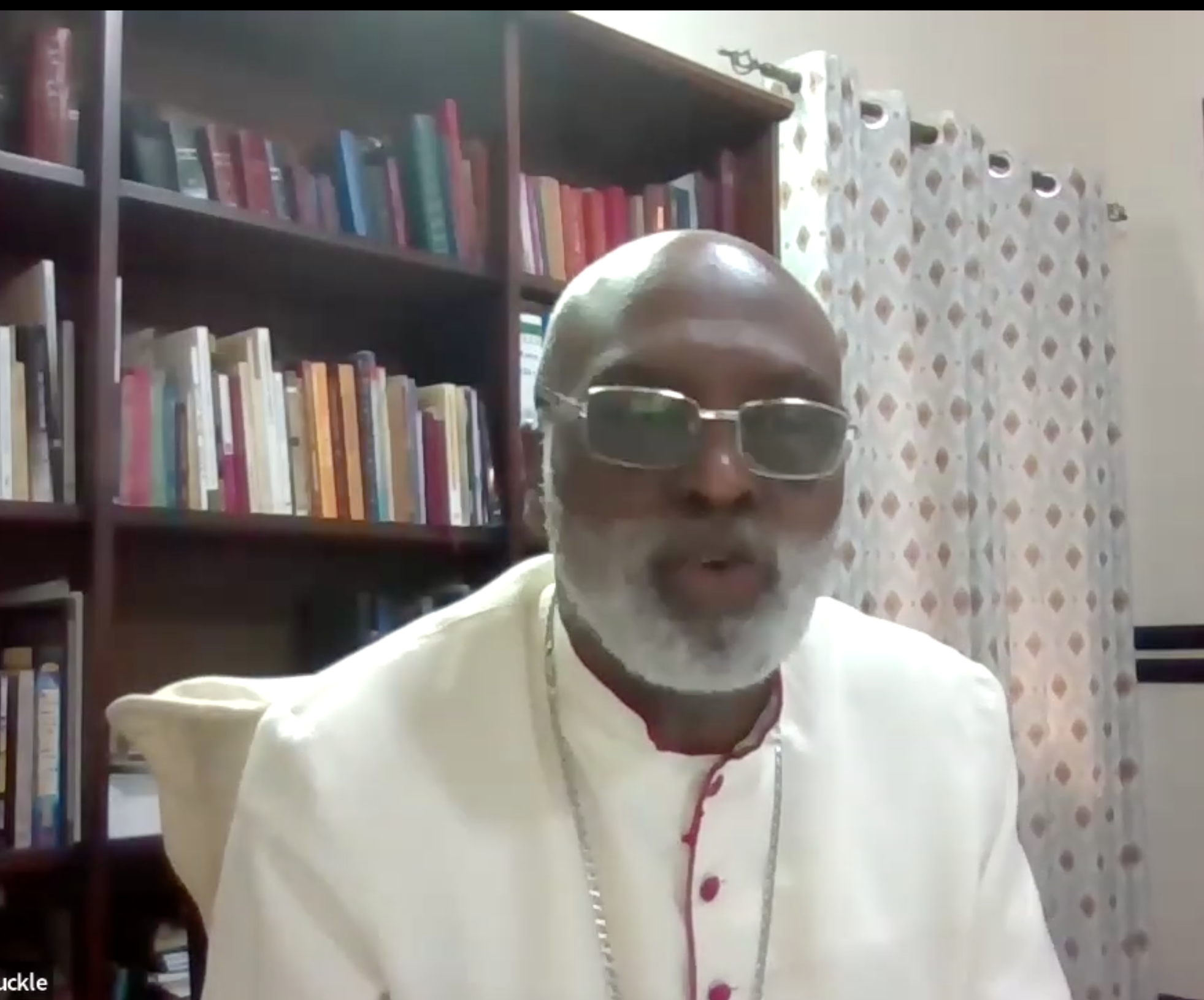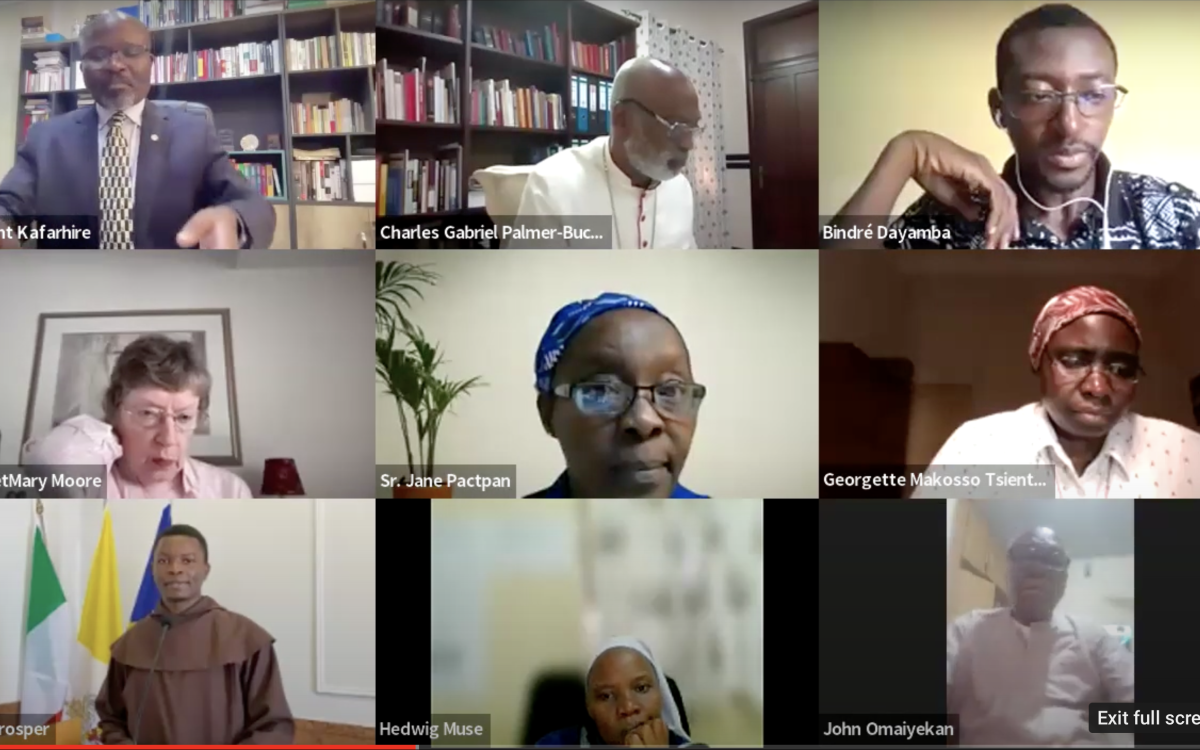A bishop’s role is defined by his mission to mirror Christ: to ignite the world with His light and ensure it blazes for generations.
The Divine Call: A Bishop’s Mission to Mirror Christ
During the tenth Synodal conversation hosted by the Pan-African Catholic Theology and Pastoral Network and Confederation of Major Superiors of Africa and Madagascar, participants discussed critical aspects of the bishop’s ministry, including criteria for episcopal selection, judicial functions, and the nature of ad limina apostolorum visits. Archbishop Charles G. Palmer-Buckle was among the speakers, and he highlighted the profound spiritual calling of bishops in Africa. He emphasized their divinely chosen role to “bear fruit that must last” (John 15:16) and their mission to mirror Christ.
Archbishop Charles G. Palmer-Buckle, the Metropolitan Archbishop of Cape Coast, Ghana, reflected on the profound spiritual calling that shapes the identity and ministry of a bishop. He asserts, “Christ Jesus makes it clear to me when he proclaims: ‘You did not choose me; no! I chose you, and I have sent you to go and bear fruit, and that your fruit must last’” (Jn. 15:16). This divine selection is not merely a title, but a lifelong mission to mirror Christ and lead others to salvation. The bishop is called to be “Christ-like (in statu fieri alter Christus)” in every aspect of his ministry, embodying Christ’s teachings and serving as a living sacrament to his people.
A Bishop Among His People: Relationships in the Local Church
 The bishop’s role extends deeply into the community he serves. Palmer-Buckle emphasizes that a bishop must reflect Christ’s presence to all, especially to “his sheep and those also outside this sheepfold” (Jn. 10:14-16). He is not a solitary leader but one who works in “collaborative ministry” with the People of God, priests, religious, and lay leaders. These collaborators are seen as gifts from God to help fulfill the Church’s mission “in solidarity and synodality, in co-responsibility and collaborative ministry.”
The bishop’s role extends deeply into the community he serves. Palmer-Buckle emphasizes that a bishop must reflect Christ’s presence to all, especially to “his sheep and those also outside this sheepfold” (Jn. 10:14-16). He is not a solitary leader but one who works in “collaborative ministry” with the People of God, priests, religious, and lay leaders. These collaborators are seen as gifts from God to help fulfill the Church’s mission “in solidarity and synodality, in co-responsibility and collaborative ministry.”
This relational approach underscores that a bishop’s ministry is about more than governance; it is about fostering unity and shared responsibility within the Church. Palmer-Buckle’s vision is clear: the bishop’s relationship with his local Church must be rooted in the pastoral care exemplified by Christ, fulfilling his mission to mirror Christ to all and to foster a sense of unity and belonging within the Church.
Communion with the Universal Church: A Bishop’s Global Ties

The bishop’s responsibilities extend beyond his local Church to the broader ecclesial community. Palmer-Buckle highlights the importance of maintaining strong ties with fellow bishops, regional and continental episcopal bodies, and the Holy See. “In the person of the Holy Father, the Vicar of Christ on earth, I am to listen to the voice of the Lord and Saviour Jesus at all times and in unity with the Pope himself,” he states, emphasizing the bishop’s role within the universal Church. This connection is not merely hierarchical but sacramental, reflecting the bishop’s duty to bring “Christ Jesus the Word of God and Sacrament of salvation to the world.”
Bearing Lasting Fruit
In conclusion, Palmer-Buckle reiterates that the episcopal ministry is a divine mandate to mirror Christ and bear fruit that lasts. “If my calling and vocation to the episcopacy is understood as such,” he says, “it must be seen as a mission to mirror Christ to all and to ensure that the fruits of this mission must last.” This is the essence of a bishop’s role—guiding the faithful and spreading the light of Christ to the world with the hope that this light will endure for generations to come.
-
Facebook
-
Twitter
-
Linkedin
-
Whatsapp
-
Telegram






